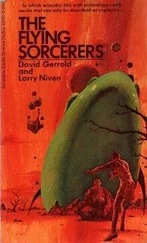Time used to be a flowing river. I sailed down it and watched the shores sweep past: here, a warm summer evening, ice tinkling in lemonade glasses; there, a cool fall morning, dead leaves crunching underfoot and my breath in frosty puffs. Time was a slowly shifting panorama along the river bank. I was a leaf in the water. I was carried helplessly along, a victim of the current.
Now I’m out of the river and standing on the bank. I am the motion and time is the observer. No longer a victim, I am the cause. All of time is laid out before me like a table, no longer a moving entity, but a vast and mutable landscape. I can leap to any point on it at will. Would I like a nice summer day? Yes, there’s a pleasant one. Am I in the mood for a fall morning? Ah, that’s nice. I don’t have to wait for the river to carry me to a place where I might be able to find that moment — I can go exactly to it.
No moment can ever escape me. I’ve chased twi-
light and captured dawn. I’ve conquered day and tamed the night. I can live as I choose because I am the master of time.
I laugh to think of it. Time is an everlasting smorgasbord — and I am the gourmet, picking here, choosing there, discarding this unnecessary bit of tripe and taking an extra piece of filet instead.
But even this temporal mobility, no matter how unlimited it is, does not keep me from arbitrarily dividing things into “day” and “night.” It must be a human thing to want to divide eternity into bite-sized chunks. It’s easier to digest. So no matter how many jumps I make, anything that happened before my last sleep happened “yesterday,” and everything since I woke up (and until I go to sleep again) is part of my “today.” Some of my “todays” have spanned a thousand years. And “tomorrow” comes not with the dawn, but with my next awakening.
I think I’m still on a twenty-four-hour life cycle, but I can’t be sure. If I add a few extra hours to my “day” so as to enjoy the beach a little longer, I find my body tends to obey the local time, not mine. Perhaps humanity is unconsciously geared to the sun. At least, it seems that way. I don’t get tired until after the world gets dark. (But like I said before, I’m not sure how old I am anymore. I’ve lost track.)
Anyway. What I’m getting to is that this happened “yesterday.”
Don and I were listening to Beethoven. (The original Beethoven. I had gotten a recorder from 2050, a multichannel device capable of greater fidelity than anything known in 1975, and had taped all eleven of the master’s symphonies. Yes. All eleven.)
We had spent the day swimming — skinny-dipping actually (it’s strange to watch your own nude body from a distance), and now we were resting up before dinner. I have this mansion in the hills overlooking the San Fernando Valley; the view is spectacular. All fields and orchards. Even the bedroom has a picture window.
It was dusk. The sun was just dipping behind the hills to the west. It was large and orange through the haze. Don had turned on the stereo and collapsed exhaustedly on the bed (a king-size water bed) without even toweling off.
I didn’t think anything of it. I was tired too. I made an attempt to dry myself off, then lay down beside him. (I’d gotten into a very bad habit with Don — with Dan — with myself. I’d discovered I didn’t like being alone. Even when I sleep, I need the assurance of knowing there’s somebody next to me. So more and more I found myself climbing into bed with one or more versions of myself. Sometimes there’s a lot of horseplay and giggling. What did I want? Did I know? Is that why I did it? It extends to other things too. I won’t swim alone. And several times we’ve showered together, ostensibly so we could scrub each other’s back.)
We were both stretched out naked on the water bed, just staring at the ceiling and listening to the Pastoral Symphony, that part near the beginning where it goes “ pah-rump-pah-pah, rump-pah-pah… ” (You know, where Disney’s joyous trumpets announce a cascade of happy unicorns.)
It was a good tiredness. Languorous. I was floating oh so pleasantly and the light show on the ceiling was swirling in red and pink and purple, shifting to blue and white.
I’d been getting strange vibrations from Don all day.
I wasn’t sure why. (Or perhaps I hadn’t wanted to admit — ) He kept looking at me oddly. His glance kept meeting mine and he seemed to be smiling about some inner secret, but he wouldn’t say what it was. He touched me a lot too. There had been a lot of clowning around in the pool, and once I thought he had been about to — (I must have sensed it earlier, I must have; but I must have also been refusing to recognize it.)
The symphony had reached that point where it suggests wild dancing, with several false stops, when a soft pop! in the air made me look up. Another Don. I had long since gotten used to various versions of myself materializing and disappearing at random. But I sat up anyway.
He looked troubled. And tired.
“Which one of you is Dan?” he said. He looked at me. “You are, aren’t you?”
I nodded.
Don, beside me, raised up on one elbow, sending ripples through the bed, but his gaze was veiled. Don II looked at him but stepped toward me. He was holding a sheaf of papers — I recognized it as my, no, his — diary; that is, his version of my diary.
“I want to excise something,” he said.
“What?”
“That is, I think I want to excise it. I’m not sure—”
He looked at me. He sat down on the bed, and for a moment I thought he was close to tears. He was trembling. “Look, I don’t know if this — this thing is good or bad or what. Maybe the terms are meaningless. I just don’t know. I’m not sure if I should tell you to avoid this or whether I should let you make your own decision.” He looked at both of us. “I can’t talk about it. I mean, I can’t talk about it to you because you wouldn’t understand. Not yet. That’s why I have to do it this way. Here’s my diary. Read it, Dan. Then you decide for yourself if — if that’s what you want. I mean, it’s the only way. You shouldn’t stumble into this. You should either go into it with your eyes open and be aware of what you’re doing, or you should reject it because you’re aware of its possibility. Either way, it’s going to change your — our — life.”
He was very upset, and that made me very concerned. I reached out and touched his arm. He flinched and pulled away. “Tell me what it is—” I said.
He shook his head adamantly. “Just read the diary.”
“I will,” I promised. “But stay here until I do, so you can talk to me about it.”
“No, I can’t. I tried that once and we ended up doing exactly what I came back to stop. I mean, I mustn’t be here if you’re to make your own choice.” And he popped out of existence. Back to his own future — my future perhaps? I won’t know till I get there.
I picked up the papers and paged through them.
The early parts were identical to mine, even up to the point where Don and I were listening to Beethoven, stretched out on the water bed—
* * *
What I’m trying to get at is that it started almost accidently.
Don rubbed himself abstractedly and then stretched and rolled over on his stomach. He reached over and grabbed a pillow above my head. “You want one?” I nodded. He fluffed it and shoved it under my head, then grabbed another one for himself. He didn’t roll away; instead, he sighed and let his arm fall across my chest.
Absentmindedly I reached up and stroked his arm. In response, he gave me a casual hug.
And then he was looking at me and our eyes were locked in another of those glances. He was mysterious. I was curious. His smile was bottomless. “What is it?” I asked.
Читать дальше











